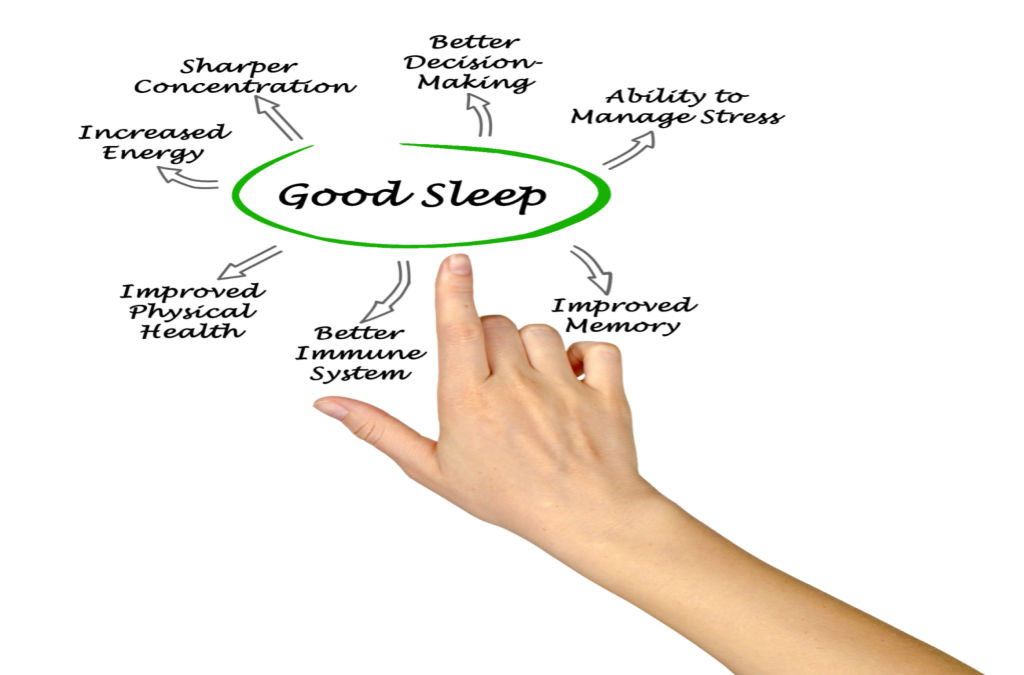Your brain does most of its housekeeping while you sleep. During this time, it disposes of waste by draining it through a system known as the glymphatic system, which runs alongside blood vessels in your scalp. Cerebrospinal fluid is the waste-filled liquid inside your brain. Without proper sleep, it would become clogged and can lead to memory loss and other problems. Sleeping is essential for your mental well-being and immune system, and you must have a regular schedule of rest to stay healthy.
Impact of sleep deprivation on learning
Researchers have documented the negative effects of sleep deprivation on various cognitive processes, including attention, memory, and visual tasks. These impairments have been attributed to the two-process model of sleep regulation, which consists of reduced alertness, slowed responses, and instability of wake-state states. The main mechanism responsible for the decline in cognitive performance during sleep deprivation is attentional lapses, which are characterized by brief periods of sleep-like electro-encephalography activity. Although cognitive performance is intact between lapses, the slowing of processing has been attributed to other factors, including the fact that subjects tended to be sleepy during these periods.

Lack of sleep also affects a person’s ability to learn. In addition to impairing a person’s ability to learn, lack of sleep has a negative impact on mood and mental health. People with sleep deficits are more likely to exhibit erratic or negative behavioral patterns, which are detrimental to their learning abilities. The effects of sleep deprivation on learning are significant. Deprivation impairs memory consolidation, which helps the information learned stick in the mind.
Impact of REM sleep on dreaming
Although scientists aren’t entirely sure why we need REM sleep, it is believed to help us function better during the day, including consolidating memories and learning new skills. Some research suggests that REM sleep may help us with procedural memory, a kind of memory different from factual and semantic memory. Despite this, it is not clear how important REM sleep is for dreaming. Nonetheless, it is important to sleep for healthy brain function, and there are many reasons why you should sleep well and get as much rest as possible.

REM sleep begins with signals from the pons. These signals travel to the thalamus, which relays them to the cerebral cortex, the outer layer of the brain. During REM sleep, certain neurons in the spinal cord are shut down, causing temporary paralysis of limb muscles. Some people, however, have problems with REM sleep and these symptoms can be dangerous. Fortunately, REM sleep behavior disorder is rare.
Effects of deep sleep on the immune system
Recent studies have demonstrated that the effects of deep sleep on the immune system are remarkably diverse. Although sleep affects a wide variety of immune functions, it preferentially influences some components, including the T cells and cytokines that are important for mounting adaptive immune responses. Further studies are needed to clarify whether sleep promotes specific cell subsets or affects all cells. It is likely that these pro-inflammatory actions originate from the early SWS-rich part of nocturnal sleep.

Studies have shown that lack of sleep weakens the immune system. Inflammation is a precursor to chronic disease, and insufficient sleep can trigger it. Moreover, sleep can help the immune system better recognize and respond to pathogens, boosting its effectiveness. In fact, research on animals has found that lack of sleep may make chronic inflammation more likely. As a result, it is important to get the right amount of sleep each night to optimize the health of the immune system.
Effects of snoozing on creativity
The snooze button is given a bad rap, with many people labeling snoozers as lazy or undisciplined. However, there is a growing body of research that suggests that waking up late and snoozing can actually improve your brain’s creativity. This may be because people before the Industrial Revolution tended to wake up at the earliest time possible and went to bed around sunset. Moreover, many snoozers have argued that their brains are better able to think when they are awake. If you snooze too often, you might end up delirious, and may not be your most creative and intelligent self.
Sleep plays an important role in enhancing creative problem-solving. Research has shown that REM sleep facilitates the use of prior knowledge. The same priming tasks were administered to subjects in the morning and after REM sleep. Then, the subjects were tested again on the same items after they were primed with new information. The difference was largely attributed to the REM sleep groups. The other two groups, the quiet rest and the NREM nap, did not improve on the same items. The REM sleep group showed a 40% improvement over the morning performance.




